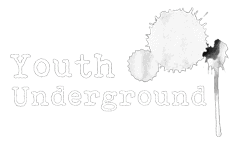INTERNATIONAL CHANNELS
—
Click on each title to access relevant page.
- Protocol to Prevent, Suppress and Punish Trafficking in Persons, especially Women and Children, Supplementing the United Nations Convention against Transnational Organized Crime (“Palermo Protocol”)
Universal crime prevention treaty focusing on law enforcement response to human trafficking. It also contains provision on the protection of victims. It stipulates a legal definition of trafficking in persons, provisions on criminalization of human trafficking in national law, measures of prevention and cooperation, and provisions on assistance to victims. It relates only to transnational human trafficking involving an organized criminal group. - ILO Worst Forms of Child Labor Convention No. 182
Universal treaty containing an obligation to take immediate and effective measures to secure the prohibition and elimination of the worst forms of child labor. This includes all forms of slavery or practices similar to slavery, such as the sale of and trafficking in children. - ILO Forced Labour Convention No. 29
Universal treaty containing an obligation for the Parties to suppress the use of forced or compulsory labor in all its forms. It is the first international legal instrument providing a definition of forced and compulsory labor and listing possible exceptions. - ILO Abolition of Forced Labour Convention No. 105
Universal treaty containing obligations for the Parties to suppress and not to make use of any form of forced or compulsory labor. It aims to supplement the provisions of Convention No. 29 on Forced Labour. - Inter-American Convention on International Traffic in Minors
Regional treaty aiming to ensure the protection of minors against trafficking. It stipulates the obligation of State Parties to institute a system of mutual legal assistance dedicated to the prevention and punishment of the international trafficking in minors and ensure the prompt return of minors who are victims of international traffic to the State of their habitual residence, bearing in mind the best interests of the minors. - Convention on the Rights of the Child (CRC)
Universal human rights treaty containing a comprehensive set of children’s rights. State Parties are obliged to protect children against all forms of exploitation and to take all measures to prevent the abduction, sale of and traffic in children. The Committee on the Rights of the Child monitors the implementation of the CRC Convention by State Parties through consideration of their periodic reports. - Optional Protocol to the CRC on the Sale of Children, Child Prostitution and Pornography
Universal human rights treaty focusing on the prohibition of the sale of children, child prostitution and pornography; criminalization of such acts, prosecution of their perpetrators and cooperation in this respect; and protection of victims of such acts. - Convention on the Elimination of all Forms of Discrimination against Women (CEDAW)
Universal human rights treaty prohibiting discrimination against women in all aspects of life. The convention also obliges State Parties to suppress all forms of traffic in women and the exploitation of prostitution of women. The Committee on the Elimination of all Forms of Discrimination against Women monitors the implementation of the CEDAW Convention by States Parties through consideration of periodic reports. - Supplementary Convention on the Abolition of Slavery, the Slave Trade and Institutions and Practices similar to Slavery
Universal treaty stipulating the obligation to take steps to complete the abolition of practices similar to slavery, including the practice whereby a child is delivered to another person with a view to the exploitation of the child. - Slavery Convention
Universal treaty containing obligations to take steps to prevent and suppress the slave trade and to bring about the complete abolition of slavery. - Rome Statute of the International Criminal Court
Universal treaty establishing the International Criminal Court with jurisdiction over the crime of genocide, crimes against humanity, war crimes and the crime of aggression. Trafficking in persons is included in the definition of “enslavement” within the category of crimes against humanity. - Council of Europe Convention on Action against Trafficking in Human Beings
Regional treaty focusing on the protection of victims of trafficking and their rights, and also on the prevention of trafficking and prosecution of traffickers. It applies to all forms of human trafficking and provides for the setting up of a monitoring mechanism. - SAARC Convention on Preventing and Combating Trafficking in Women and Children for Prostitution
Sub-regional treaty promoting cooperation of States in the prevention and suppression of human trafficking. It stipulates the obligation of State Parties to criminalize human trafficking, to prosecute its perpetrators and to cooperate in this respect; and to protect victims of trafficking.
- OHCHR Recommended Principles and Guidelines on Human Rights and Human Trafficking
Universal, comprehensive and detailed guidelines focusing on the protection of the rights of victims of trafficking. - UNICEF Guidelines for Protection of the Rights of Children Victims of Trafficking in Europe
The guidelines set out standards for good practice in order to protect child victims of trafficking. They cover issues such as identification, appointment of guardians, interviewing victims, referral, interim care, status and durable solutions. - WHO Ethical and Safety Recommendations for Interviewing Trafficked Women
Universal recommendations for interviewing women victims of trafficking in order to avoid further harm and re-victimization of trafficked persons. - OSCE Action Plan to Combat Trafficking in Human Beings
Regional toolkit to help States implement their commitments to combat human trafficking. It covers the protection of victims, prevention of human trafficking and prosecution of perpetrators. - European Union Council Framework Decision on Combating Trafficking in Human Beings
The aim of the decision is to harmonize the laws and regulations of the Member States in the area of police and judicial cooperation in criminal matters relating to the fight against human trafficking; and to introduce at the European level, common framework provisions in order to address certain issues such as criminalization, penalties and other sanctions, aggravating circumstances, jurisdiction and extradition. - ECOWAS Declaration on the Fight against Trafficking in Persons
Sub-regional instrument containing the commitment of States to criminalize trafficking, to protect victims, raise public awareness, sensitize law enforcement officials, create anti-trafficking units within law enforcement agencies, etc.



